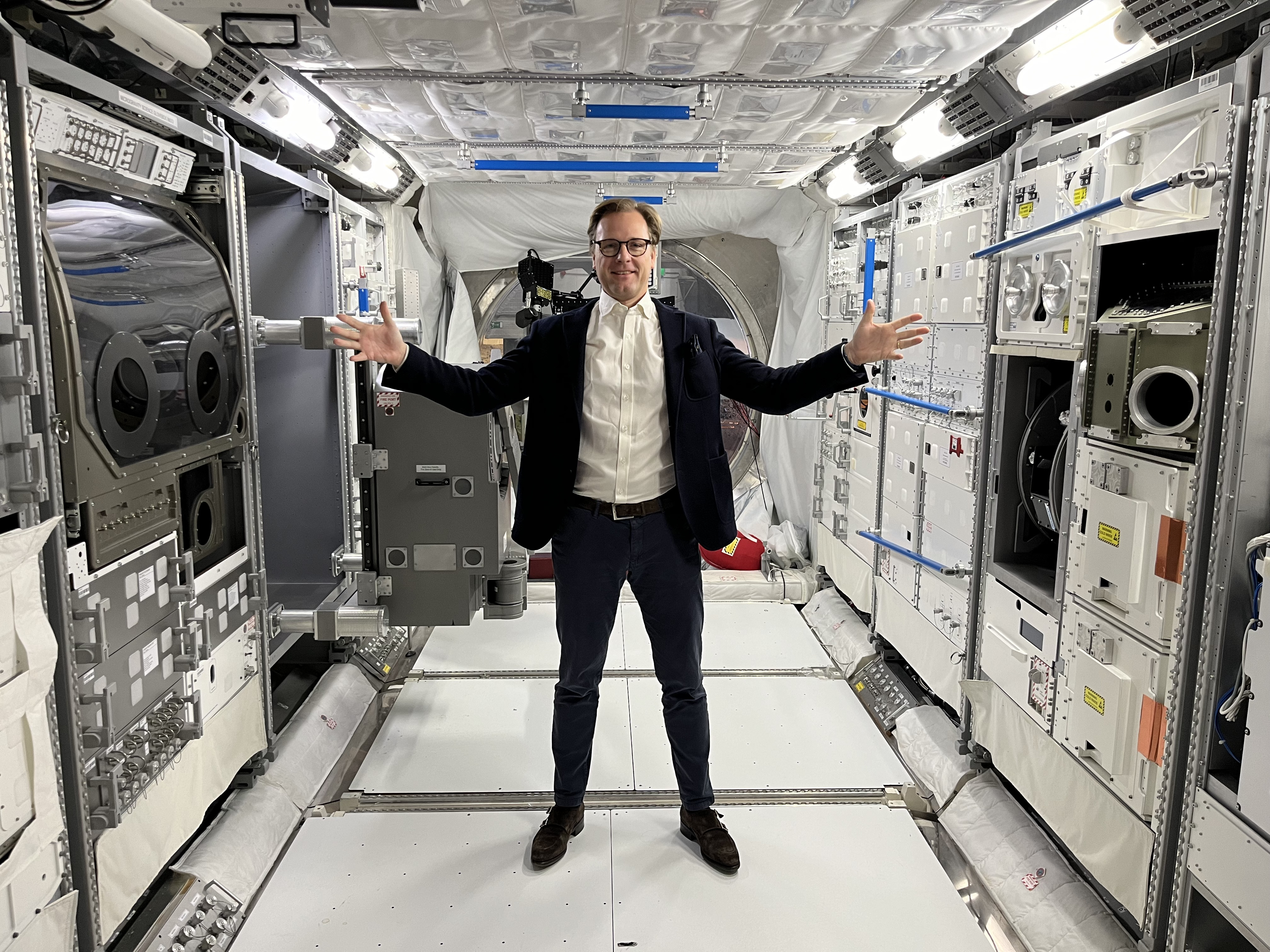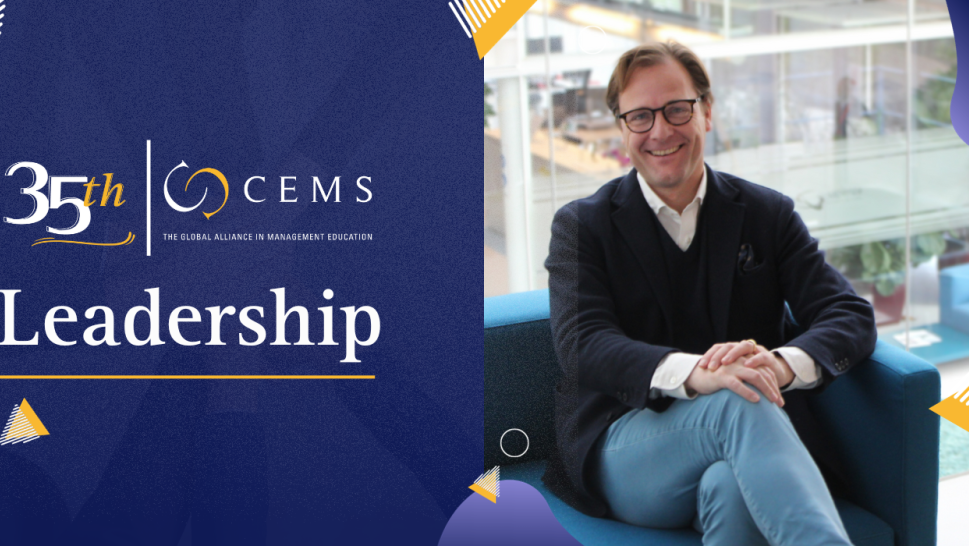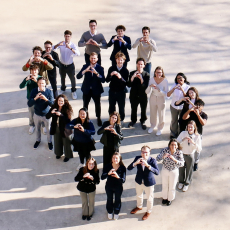Niels, an award-winning RSM Alumni, has discovered a whole new world with CEMS. In conversation with him, we learn:
How did the CEMS and ESA Connection begin?
While working on my Masters about business incubation and how you can use this concept to commercialise space technologies, ESA realised how important this area was to become. This foresight led to the establishment of the first ESA business incubator in ESA’s European Space Technology and Research Centre ESTEC, Noordwijk. The space sector, certainly back then, was rather introverted, at least from my perspective as a young aspiring RSM graduate. That meant that there was an opportunity to leverage upon. And who better to work on new ideas and see things differently than CEMS students? This is how ESA became involved with RSM and the CEMS Block Seminars.
What happens on the CEMS Block Seminar?
These block seminars are a great way for CEMS management education students to see space technologies through the lens of business administration and make connections to and from completely new markets down on earth, such as healthcare, agriculture, logistics and the processing industry. On the Block Seminar the students, working in smaller teams and with both an Academic Lead and ESA, come together to develop the students' curiosity and creativity to find solutions using space technology, data and infrastructure.
There are two groups and each deals with a different area. In “Turning Technology into Business”, the group is shown an asset from space technology that ESA has developed for space missions. Their challenge is to make this asset work for terrestrial life. The other group is challenged to work with space startups from one of the ESA’s 29 business incubators centres from across Europe.
The uniqueness of the course is that CEMS students get to work with engineers who, while versed in high technological assets, they require support to bridging the gap between the technology and use of it in daily life. The last seminar was a real premier in terms of turning the attention from terrestrial markets to the space market: in-orbit manufacturing. In-orbit manufacturing is an emerging field in the space industry, and students get the opportunity to learn more about this exciting new development and provide business acumen and creative thought to the challenges space technology faces. The critical analysis and curiosity with collaboration of the students, ESA engineers and Academics creates exciting and effective solutions and new appreciation of space technology. You don’t need to be a rocket scientist to come up with space ideas!
And now next year we celebrate 20 years of Block Seminars and the CEMS/RSM cooperation!
20 years is amazing - what are the plans so far?
There are some big plans ahead, and we would love to have as many people come along to celebrate with us. At the end of August 2024 we are aiming to have talks, events and showcase ESA, RSM and CEMS. We are working on a series of talks about Space and Sustainability.
The ideas and concepts that have come from the Block Seminars and the students have led to different innovations. For example, one year we had students look at data from a satellite that measures pollution. They came up with the idea that people could be alerted when the pollution is high to tell them it's time to put on sun cream. We linked this to Corporate Partner, L'Oréal, and their Men Expert range. It was such a simple yet effective connection.
The applications of space technology are vast - another example is using ESA’s MELiSSA life support project. MELiSSA stands for Micro-Ecological Life Support System Alternative and the technology basically replicates Earth’s ecosystem by recycling all waste on a spacecraft or space station. This ecosystem allows astronauts to survive, and even feel comfortable, in the harsh vacuum of space. One team came up with the idea to use elements of this technology for the waste management at FloraHolland, the biggest flower auction centre in the world and conveniently close to ESA’s Technology and Research Centre (ESTEC) in Noordwijk. The recycling of flower waste could be used for powering the carts that drive the flowers around. Both FloraHolland and ESA were so impressed by the business plan of these students, that we offered them a combined internship!

What does Leadership look like to you?
When I went to receive the RSM award, I was asked to make an “I will” statement. My statement, still today, is “I will create space to innovate”. What I realised is that leadership is crucial, but isn’t always as visible as you may think it needs to be. So when I focus on leadership, I focus on what the needs are. For ESA it is about creating space, enabling others to excel. To enable teams to be successful, you have to carve out a space for them to innovate. You need to hold space for them to work.
You have to acknowledge that you yourself don’t have all the answers and your team are the people who do, so give them that space. Leadership is about knowing and employing diverse teams to generate a wealth of ideas and innovation.
Leadership isn’t about being visible in a traditional way. Leadership is not a short-term thing where you change from management job to management job, from organisation to organisation, Leadership is having a long-term vision and purpose. It may be at one company or organisation, or it may be at a few, but leadership is being able to lead at a visionary level. The purpose being to benefit humanity.
I feel that this is my mission here at ESA, to bring management education to space and bring space into management education and to drive this movement forward. CEMS shares similar values and that is why it works so well.
What is great about the CEMS alliance?
All corporate partners should look to the CEMSies, both students and the community as a whole because we have the possibilities to make a real difference. In addition, our start-ups from our business incubation centres have benefited a lot from this relationship - we have a few CEMSies who are working in some of them.
We share the CEMS values, so it works very well. Students and alumni are a crucial source of innovation, of leaders, of people that have purpose and life changing drive. Fun fact: I didn’t join CEMS as a student, so the next best thing is to join this great global alliance as a professional!
What’s next for ESA?
We are always looking to explore new frontiers and the commercialisation of space, particularly in our earth’s orbit, is very interesting right now. We are very happy collaborating with CEMS, we need different outlooks to break into different markets. Modern business thinking and leadership is important to the future of the space industry, and society at large.
Hence, to borrow from a quote of another famous ‘astronaut’: It’s “to infinity and beyond” with CEMS and ESA!
-
Many thanks to Niels and we all look forward to celebrating with ESA and RSM next year!




